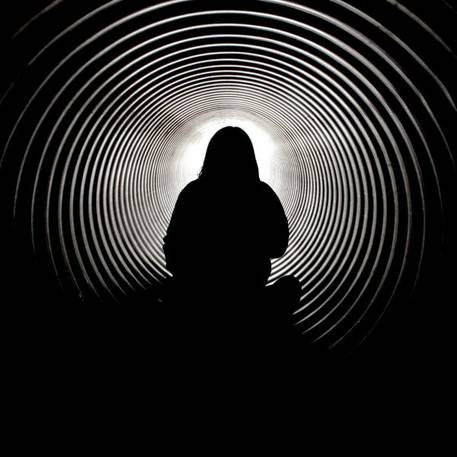


ROME – The first tunnel of darkness into which Italy is staring is Premier Mario Monti’s forthcoming program of “blood and tears.” Even some pro-Monti Italians say they are impatient that more than a week has passed since the new government was sworn in, yet no one has revealed either the names of the cabinet undersecretaries (that list is due Tuesday) or precisely which economic sacrifices are in store for the country (promised for early December). This impatience could be understandable, after so many delays in the past years of bungabunga government.
Monti was particularly criticized for promoting a measure—seen as time-wasting during this emergency period—to extend citizenship to the children born in Italy to immigrants. But as Monti himself has explained, he will not introduce any belt-tightening measures in his supplementary budget package that might have to be altered subsequently. His plan is that each measure is to be thought through carefully first. But just what does this mean, and who is to think it through?
This brings us to Tunnel Number Two, a physical tunnel linking the Italian Senate building underground to the Renaissance-era Palazzo Giustiniani next door, used for office space for senators. According to the usually informed sources, a secret meeting—which all involved save, significantly, Monti have denied took place—was held inside Rome’s Palazzo Giustiniani, where the neo-Senator Monti is now entitled to keep an office. The trio traveling the underground railroad to meet with the new Premier-cum-Senator were the Sicilian Angelino Alfano, 41, who is national secretary of Silvio Berlusconi’s Freedom Party (PdL); the cigar-chomping 60-year-old Bolognese Pier Luigi Bersani, who is the secretary of Berlusconi’s despised Democratic Party (PD) on the left; and Pier Ferdinando Casini, 56, head of the “Terzo Polo” (Third Pole), a cluster of moderate political parties which, during the past year of a leadership vacuum, suddenly show clout and claws.
So what was the point of the meeting, and what did this quartet talk about—was a list of the forthcoming harsh measures expected of the Monti budget put before them for approval, along with the names of the new undersecretaries? Or were they discussing a draft plan to discourage or at least limit the predictable Greek-style anti-austerity piazza riots-in-waiting, expected when jobs are lost? Did they just have a cup of tea together, or do these formal adversaries have a joint secret plan for governing together? There’s where the rest of us would like to see some light shed—particularly because Alfano’s boss, Berlusconi, subsequently attacked the Bersani crowd as being former Communists (as many were) who are still, said Berlusconi, Communists beneath their veneer of democracy.
“We’re asking for some clarification [about the alleged meeting], first of all from Monti,” said Antonio Di Pietro, 61, the former anti-corruption prosecutor who heads the Italia dei Valori party (basically untranslatable: something like “the Italy of Good Values”, or IDV). Such a secret meeting is suspect because of fears in some quarters of what’s known here as an “Inciuccio”, or everybody tugging at the sow’s teats—Communists, Catholics, Liberals, Whatevers. On the one hand everyone is expected to pitch in, given the emergency; on the other, the Monti government has not been elected but selected, and many are concerned that this is de facto to push democratic procedures under the carpet. The argument continues: those supporting the emergency government explain that Parliament has authorized the government takeover by technocrats. Those protesting it remind us that, if a government walks like a politician and talks like a politician, it just may be political.
Tunnel number three is the Euro itself. The construction of peaceful and commercial European unity was a process that took some of the best minds of Europe, including Italy, sixty years to bring about, but that suddenly is at risk. Like some bookmaker in London, the Credit Suisse Bank has given odds of 10% that the Euro will collapse. Who is to blame for that? After Monti was warmly welcomed and indeed hailed in Brussels last week as one of their own by Angela Merkel and Nicolas Sarkozy, Merkel nixed Monti’s proposal to create Eurobonds because these would require Germany to pay higher interest rates. Her argument is that hard-working Germans would have to pay the others’ debts.
On the other hand, if this were a way to keep Italy from plunging deeper into recession, it could make economic sense; and an Italian economist friend was screaming over the telephone that by their refusal, the Germans are “about to ruin Italy for the third time.” Eurobonds, many argue, would reduce the present devastating spread.
The fourth tunnel is the pension system, which awarded lifetime pensions in some cases to 36-year-olds who had begun work in the over-stuffed state bureaucracy at age 18. In an article published in a scholarly magazine shortly before she was made Minister of Welfare, economist Elsa Fornero explained that a serious reform of the pension system is a mathematical necessity. In the past, she explained, pension contributions simply did not supply sufficient income to pay for what actually is being disbursed in the form of pensions. Ever since 1992 pension contribution regulations have varied, awarding a certain layer of privileged workers with more money than is justified by their contributions so that others receive too little. “If the rules change continuously, it becomes difficult to make a reasoned plan,” she argues. “If a system is too generous toward the present generation, it accumulates an implicit debt that will fall upon the younger generations and the future.”
Source URL: http://iitaly.org/magazine/focus/op-eds/article/there-light-end-tunnels
Links
[1] http://iitaly.org/files/18767tunnel1322442955jpg